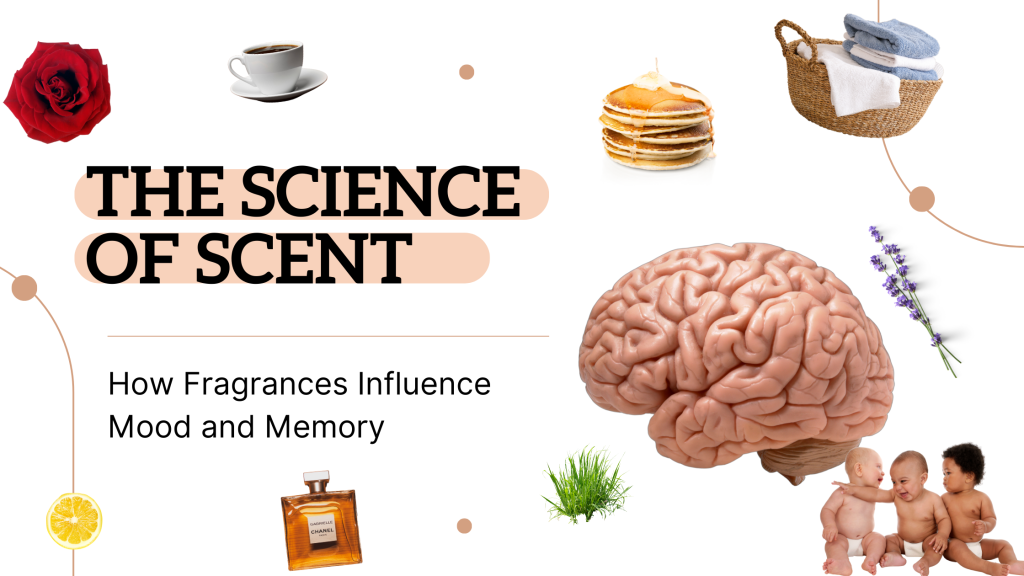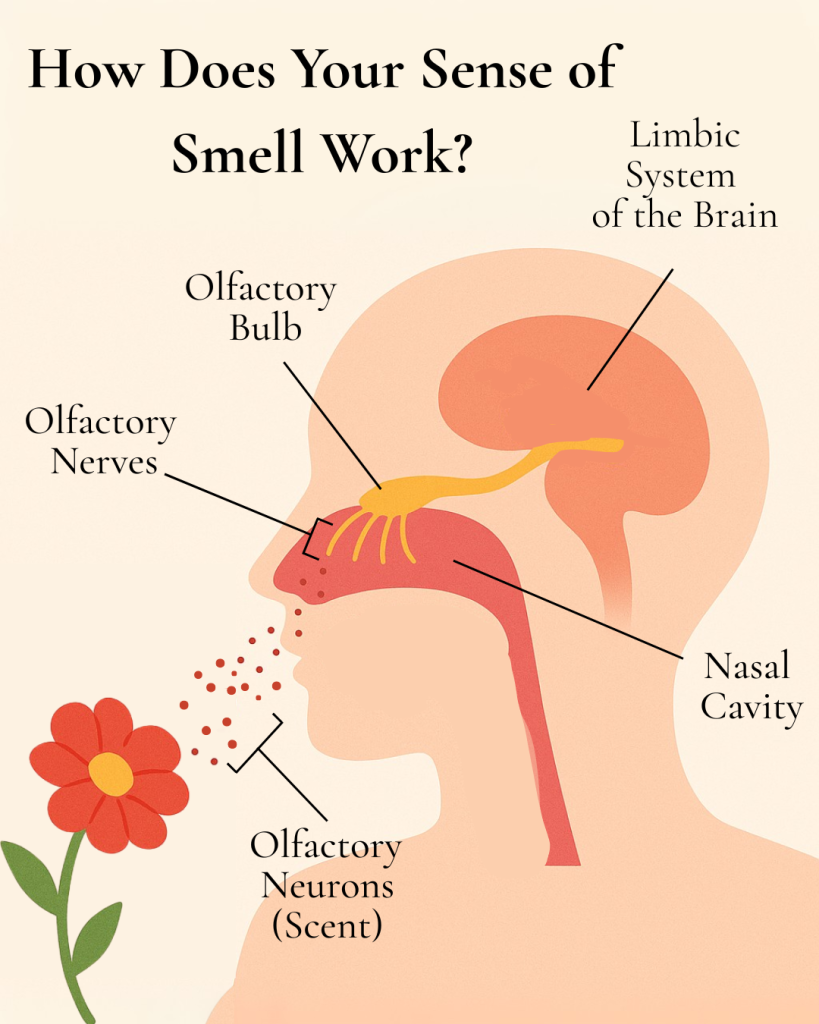The Science of Scent: How Fragrance Influence Mood and Memory

The Science of Scent: How Fragrances Influence Mood and Memory
Fragrance is more than just a pleasant aroma. It’s a powerful tool that can evoke emotions, trigger memories, and transform experiences. While popular scents like lavender, citrus, and peppermint are well-known for their mood-enhancing properties, a world of less commonly discussed fragrances offers equally compelling benefits. But how does it work?
The Olfactory Pathway: Connecting Scent to Emotion and Memory
Our sense of smell is uniquely connected to the brain’s limbic system, which governs emotions, behavior, and long-term memory. When we inhale a scent, olfactory receptors in the nose send signals directly to the olfactory bulb, which is part of the limbic system. This direct connection explains why certain fragrances can evoke strong emotional responses and vivid memories more quickly and intensely than other senses.

Scents and Their Psychological Effects
A few scents have been shown to influence mood and cognitive functions:
- Lavender: This sweet, floral scent has sedative properties and helps lower blood pressure, promoting relaxation. It’s important to note that ylang ylang should be used with caution around pets.
- Cedarwood: With its grounding woody aroma, cedarwood helps reduce cortisol levels and promotes melatonin release, aiding in deep, restorative sleep.
- Chamomile: Often associated with relaxation, chamomile offers a sweet, fruity aroma that supports full-body relaxation and can be used in diffusers or baths.
The Proustian Effect: Scent and Memory
“… I carried to my lips a spoonful of the tea in which I had let soften a bit of madeleine. But at the very instant when the mouthful of tea mixed with cake crumbs touched my palate, I quivered, attentive to the extraordinary thing that was happening inside me.” –In Search of Lost Time, Marcel Proust
The phenomenon where a specific scent triggers a vivid memory is known as the “Proustian effect,” (or Proustian Moment) named after the French writer Marcel Proust. Research has shown that smells can trigger more intense and detailed memories compared to visual or auditory cues. This is because the olfactory bulb has direct connections to the amygdala and hippocampus, brain areas strongly implicated in emotion and memory.
Functional Fragrances: The Future of Mood Enhancement
The emerging field of functional fragrances focuses on creating scents designed to influence emotions and moods. Brands like Charlotte Tilbury have developed collections aimed at evoking specific feelings such as love, happiness, energy, serenity, empowerment, and seduction, utilizing insights from neuroscience and scent algorithms.
This trend reflects a growing consumer desire for fragrances that support emotional well-being, with many seeking scents that provide intense emotional experiences.
Incorporating Unique Scents into Your Life
Understanding the diverse effects of various fragrances allows for intentional use in daily life:
- Personal Spaces: Diffusing cedarwood or chamomile in the evening can create a calming environment conducive to relaxation and sleep.
- Work Environments: Utilizing neroli or bergamot scents can enhance focus and reduce stress, improving productivity.
- Special Events: Incorporating unique fragrances like ylang ylang or cedarwood into weddings or gatherings can create memorable atmospheres that resonate with guests.
Embracing the Power of Diverse Fragrances
Exploring beyond traditional scents opens up a world of possibilities for enhancing mood and memory through fragrance. At Scentex, we are dedicated to helping you discover and incorporate these unique scents into your life, creating personalized experiences that leave lasting impressions.





